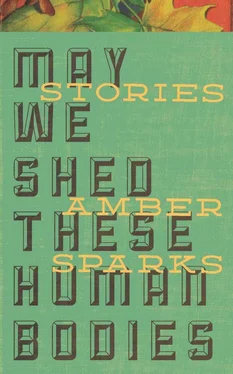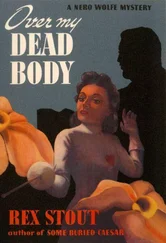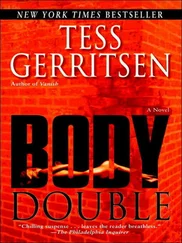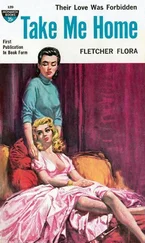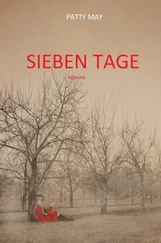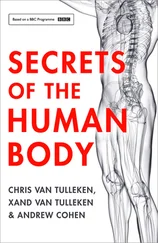Amber Sparks - May We Shed These Human Bodies
Здесь есть возможность читать онлайн «Amber Sparks - May We Shed These Human Bodies» весь текст электронной книги совершенно бесплатно (целиком полную версию без сокращений). В некоторых случаях можно слушать аудио, скачать через торрент в формате fb2 и присутствует краткое содержание. Год выпуска: 2012, Издательство: Curbside Splendor Publishing Inc., Жанр: Современная проза, на английском языке. Описание произведения, (предисловие) а так же отзывы посетителей доступны на портале библиотеки ЛибКат.
- Название:May We Shed These Human Bodies
- Автор:
- Издательство:Curbside Splendor Publishing Inc.
- Жанр:
- Год:2012
- ISBN:нет данных
- Рейтинг книги:5 / 5. Голосов: 1
-
Избранное:Добавить в избранное
- Отзывы:
-
Ваша оценка:
- 100
- 1
- 2
- 3
- 4
- 5
May We Shed These Human Bodies: краткое содержание, описание и аннотация
Предлагаем к чтению аннотацию, описание, краткое содержание или предисловие (зависит от того, что написал сам автор книги «May We Shed These Human Bodies»). Если вы не нашли необходимую информацию о книге — напишите в комментариях, мы постараемся отыскать её.
May We Shed These Human Bodies peers through vast spaces and skies with the world's most powerful telescope to find humanity: wild and bright and hard as diamonds.
May We Shed These Human Bodies — читать онлайн бесплатно полную книгу (весь текст) целиком
Ниже представлен текст книги, разбитый по страницам. Система сохранения места последней прочитанной страницы, позволяет с удобством читать онлайн бесплатно книгу «May We Shed These Human Bodies», без необходимости каждый раз заново искать на чём Вы остановились. Поставьте закладку, и сможете в любой момент перейти на страницу, на которой закончили чтение.
Интервал:
Закладка:
She had her baby and cried for the first time in her life when she saw the new creature, unnerved and horrified by what she had made. She knew it was her own fault. She’d eaten the apple. But she would punish him — punish her children and her children’s children, and their children, too — by cursing her own rotten blood and spilling a little into their veins. Not enough to kill them. Just enough to consign them to the solitude she longed for, and would never have again. She bent over her baby’s cradle, pulled a pin from the band of her hat, and stuck her finger until a single drop appeared. It hung like a ruby from her finger for just a second, before splashing onto the child’s tiny tongue. The baby shifted in her sleep and licked her lips, leaving a faint scarlet smear at the corner of her mouth.
My sister Anne has my great-grandfather’s face; she is round and rosy like he was. She pretends to herself that the story doesn’t matter. She has been married twice, but they were short affairs, bookended by solitude. Still, Anne thinks she can escape what’s in the blood. Every time she begins a new relationship, she calls me and says, You see? We’re not doomed to be alone like Gramama.
I remind her that Gramama was never alone, and that it was worse for her because of that. Anne usually hangs up on me then. I understand she is trying to live a better life, to somehow emerge from this family legacy a changeling. A swan from the duck’s nest.
But I know better. I am very like my great-grandmother, I think. I don’t have her beauty or her height, but I feel my eyes are strange and lonely as hers. In groups I stand apart; in photographs I have a hungry look, startling and yet sad. I can’t bear to be touched by other people. I am used to Anne, but not to anyone else.
And I don’t want anyone to be used to me.
Gone and Gone Already
Kay keeps lists of everything; it’s her illness. So when she told me she has a List of Attempted Suicides, I wasn’t surprised. She says most of the women here are on it. They are failures in everything, even in this.
I avoid them, those women. I call them the Remnants. They seem miles away from being anything like Kay and me, but maybe that’s because we’re young and losing time and they seem old and ancient as icebergs. Maybe it’s because we can’t stop talking and they can’t start. The Remnants are mute and locked behind their own mental glass, even at the tables in the lunchroom. Even when they dress up for visiting day, they are engulfed in their nightgowns. Their smiles scream apologies. They seem always to be waiting, just hanging in the hall like houseplants.
Kay says there are other old women, like her grandmother, who wear capes and laugh into their wrinkles and swim forward, not backward. There are old women like that, she says. The kind of women who are stout and loud. Those are the kind Kay and I plan to be, if we ever get out of here.
Today the women are especially strange to me. I’m at the clinic’s counter selling cigarettes, and they keep wandering up like the dead, waving their arms and mumbling in some flat, weird language. The oldest, Beryl, keeps saying something about giving birth to the world. Usually you can’t get the Remnants to talk for anything, but today they won’t shut up. They won’t buy any cigarettes, either; they just seem agitated, like animals before an earthquake. They just want to talk at me.
Kay wanders behind the counter and plants herself on one of the stools. She starts making faces at the Remnants, pushing her tongue out and crossing her eyes. You’re not supposed to be here when I’m working, I say. You know that, Kay. You’re going to get me in trouble.
She shrugs. What trouble? So you go back to your room. So then we can work on the lists. Good.
I hate working on the lists. It’s boring. So I ignore Kay and wait there, hoping one of the Remnants will buy some cigarettes or candy or something from me so I can ring somebody up. But they’re more agitated than ever. Kay seems to have angered them. There’s a buzzing, buzzing coming up from their ranks, and Beryl has emerged from the pack again and is tapping her long yellow nails on my counter. The attendants all make fun of Beryl, because she still fancies herself a looker, a knockout, even with her withered tree-face and bald scalp. She’s forever flirting with the maintenance man, trying to seduce him with her bony-hipped walk.
Beryl waves her skinny finger in my face. I know, she says. I know about Kay.
You shut up, I say. Or I’ll never sell you another cigarette. Beryl has smoked since the beginning of time. Since the beginning of tobacco, anyway.
I’ll tell, I’ll tell, she says. You need to learn to respect us. You need to stay here and learn.
I feel myself turn yellow and red and finally white, all the color and feeling draining out of my face. I’m terrified. I don’t want to stay here forever. I want to go back to the outside. But Kay is angry. She grabs a pack of cigarettes and shoves it, hard, into Beryl’s open mouth. The old lady’s eyes go huge and then narrow, and a thin gurgle-filled scream rises in her throat and spits itself out with the cigarette pack onto the tiled floor. All the Remnants go quiet.
Then Kay starts filling the silence. She is shouting — she is cursing Beryl — she is calling her a horror film, a history book, a thing that’s done and should be gone, gone already. Then the attendants are dragging us away, me and Kay, Kay and me, and I am shouting, too, at the Remnants, yelling, They should fling you all into the sun, and I mean it, I do. And Kay is/I am/we are/never leaving here now because Beryl will tell and they’ll know, they’ll know about Kay. The Remnants will stay solemn and still as statues, as guards, while Kay and I wait in my room for the old to grow on us.
A History of Heart Disease
Glen's father dies in a Burger King. Glen is only five and he has to watch his father's big hands fumble at his necktie, then push over paper cups, plastic straws, and finally even people on his way to the floor. Since Glen is only five, he laughs at first because he thinks his father is clowning around with him like he always does. He laughs and laughs until a fat lady in purple stretch pants leans over his father and starts screaming.
When Glen is thirty he is handsome and married, with a little girl and a Golden Retriever named Betsy. He teaches high school kids about rocks and soil. His wife likes to tell him that his head is full of rocks, which is more or less true.
Glen and his wife are having what they refer to as 'marital problems.' She has gained seventy pounds in the last three years. Seventy pounds! Glen cannot understand it. He knows he's an asshole, but Glen hates the way his body sinks into hers, how her new stomach is soft and unformed. It feels like screwing the Pillsbury Doughboy.
Glen was an athlete in school. He was golden and fast, and everyone wanted to be him or be with him. He still runs every morning and now he coaches the high school track team. His wife refers to him as 'Jock,' or sometimes 'The Jock.' He is never sure if this is a compliment or not.
One day after track practice, he is teaching a student named Jenny the right way to wrap a sprain when the phone rings. It is his wife.
Glen, she says, your mother's dead.
When? he says. How?
Just a few hours ago, she tells him, at the Wal-Mart over in Westchester.
Not where, says Glen. How?
Oh, sorry — heart attack — she was buying paper towels, I guess. Or at least, that was the only thing in her cart.
Glen is prepared for this. He has been prepared a long time, ever since his father died. He doesn't laugh. He doesn't disbelieve. He sighs and sends Jenny home and picks his daughter up from daycare.
Читать дальшеИнтервал:
Закладка:
Похожие книги на «May We Shed These Human Bodies»
Представляем Вашему вниманию похожие книги на «May We Shed These Human Bodies» списком для выбора. Мы отобрали схожую по названию и смыслу литературу в надежде предоставить читателям больше вариантов отыскать новые, интересные, ещё непрочитанные произведения.
Обсуждение, отзывы о книге «May We Shed These Human Bodies» и просто собственные мнения читателей. Оставьте ваши комментарии, напишите, что Вы думаете о произведении, его смысле или главных героях. Укажите что конкретно понравилось, а что нет, и почему Вы так считаете.
